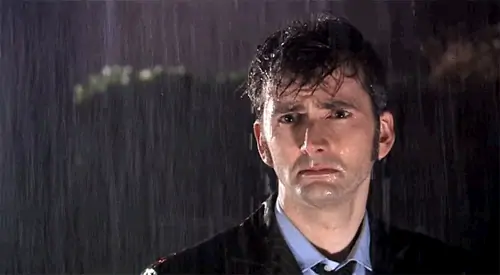Is It True That Love Lives Three Years?

They say that love lasts a lifetime. If it’s real, it never really fades.
Science says otherwise.
The book Love Lasts Three Years by Frederic Beigbeder says – like its title suggests – that love can have its extreme highs, but after you hit the three-year mark, you’re in critical trouble.
But how true is that? The great love stories from Hallmark, Lifetime, and Disney are a tsunami in comparison to this drop in the pond. Divorces and staying perpetually single is more popular than ever, but we have our grandparents, and Love Comes Softly, and the Little Mermaid to look to, right?
Here’s how long love scientifically lasts, what factors bring it to an end – and how you can make it last longer:
1. Does the Passion Wear Off?

According to a study conducted by the University of Pavia, love not only wears off – it does so in twelve months. Yikes. You don’t even have three whole years. Their test showed that couples who were head over heels for each other had an abundance of Nerve Growth Factor – the body’s own personal love drug. It gives you flutters when they’re near and is chemically begging you to hold on and never let go. Yet after twelve months, even if things are technically going great, this Factor reduces to the same amount everyday singles have.
When the chemicals leave your system, you no longer have a biological reason to crave your partner. There may be other factors that may keep you together for the following two years, and perhaps the determination to not ruin what was once a good thing makes you stick it out for a while longer. But it’s at this point lovers usually call it quits – and love takes its final breath.
But losing the chemicals isn’t the lynch pin.
2. Are You in Love with the Same Person as the Beginning?

What else leaves at year three? The exact person you met day one. People naturally grow and evolve over time, as they should, and three years is a decent amount of time for someone to advance from starting point one to end point six. The new person they become can be great – but no longer compatible with you.
Without chemicals to keep the attraction biologically, you’re left to decide if you love the person beneath – the person they are now. If you see they’re not, then it’s time say your goodbyes and move to the next person, whose growing personality will hopefully compliment your evolved one in three years.
3. Does a Watched Pot Ever Boil?

Maintaining a friendship is half the effort of maintaining a boyfriend or girlfriend. Why is this? Because friendship has less pressure than romance. Losing a friend is painful, but usually happens slower and more organically over time. Breaking up with a bestie doesn’t put a mark on your ability to find companionship. With this in mind, we place more value on making a romance work – and end up micromanaging it into a hole.
There are no goal marks with a friend, yet if a romance doesn’t reach them all on time, we panic. We’re more aware of our partner’s irritating habits, cautious of who they spend time with, and are more likely to look to what the future holds rather than enjoying the now. This makes it easier for petty fights to begin, for us to call it quits early, or for us to tolerate something we truly hate just because we don’t want to end the relationship. As a result, real love comes to a stop early, because we suffocate it.
4. Are You Trying to Science an Organic Process?

For fear of growing apart, couples end up over complicating the process. They fall into a routine, afraid to accidentally lose the trait their partner first fell in love with. They begin trying to alter their evolving personality so that it appeals to their partner more, and this creates two fatal problems:
One, it’s unoriginal and comes across as such. Respect in a relationship means respecting who the person really is. It becomes shallow and unfulfilling when it’s clear the partner is putting in too much effort.
Two, you’ll be miserable. Since you’re going against who you really are and should become, you’re creating unbalance within yourself. That spawns resentment, anger, and dissatisfaction. This creates a stagnation that’s tolerable after the first year since the Nerve Growth Factor left. By the third, enough is enough.
How Can You Make Your Love Last?

On a science level, love only lasts three years – or even less. But that doesn’t mean it has to. The love you originally had will leave, but that’s where the importance lies in developing your own, new kind of love that will last another three years – then develop another kind of love that lasts three more.
Learn about who your partner is in the present, and find new things that you adore about them. Broaden your range of conversation, activities, and loving gestures so that there are new things to discover and enjoy. Maybe you’ll get a wakeup call in three years that you’re fundamentally not meant for each other – but you can also work to grow and redefine your love as time passes, so you care about them as a person and not according to what your chemicals are telling you.
Picking up new interests together allow you both – as your new, modern selves – to grow and evolve together. It won’t be the same relationship as the beginning. It can be a new and better one.